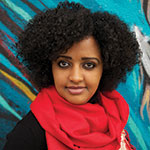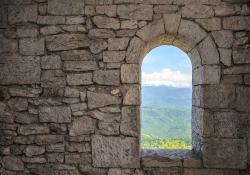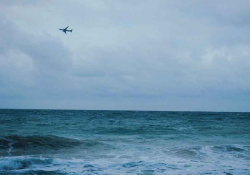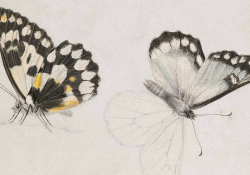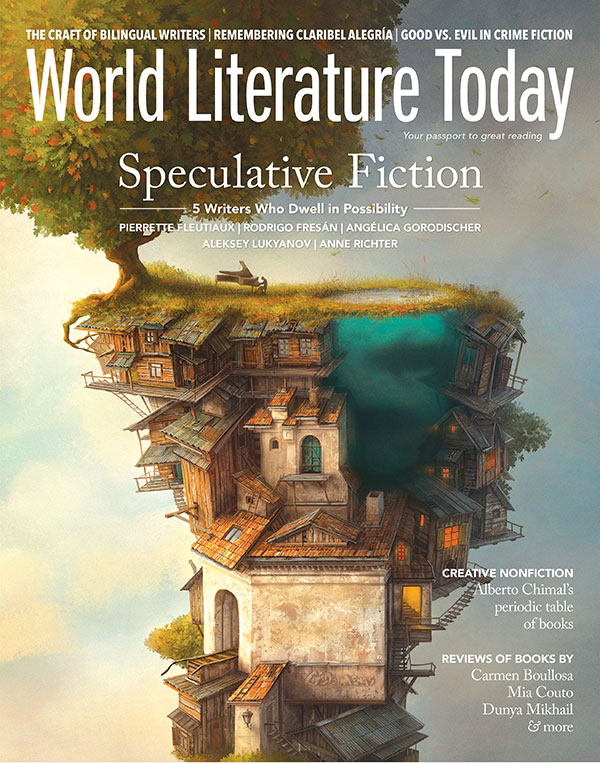Six Poems

Nomenclatures II
Those which we are given
in the brink of sorrow,
or joy – or both;
those marked on our foreheads
the curse of a generation,
or more,
marked on our abdomens
birthmarks, like numbers
aligning us with a history
we seem to forget;
those we carry within
years later, many lands apart,
having something rotten
from the inside out
our bodies finally drooping
with the weight of the firmament;
those we carve new and milky,
pasty on our foreign tongues
monosyllabic, odd things
reminding us of everywhere,
nowhere;
those we receive, or hear
and not dissent to, shaping themselves
from our hair, the shape of our
bodies, the color of our skin,
the foreign-ness of our mouths;
and those filled with grief
and strife – the names of our fathers
and foremothers, beaming through
centuries, across the black seas
and into new lands, carrying us
throughout, containing us –
containing this, all of it,
all our names and naming,
calling us of something
filled with grim love.
Dust and Bones
Stranded at sea, bubble from
the earth, dust and bones
slide on my face.
This is not my story;
but in it I stand
called by other names;
the ghosts of my past selves
all reaching at the same time
and all refusing this –
this foreignness they smell
like something burned and tossed.
I dream of covering my body
with the white salt of Assab’s dunes –
even Lot’s wife
whispered the name of her city
with her last breath.
Instead, this body is bone,
constructed to fracture into multitudes,
black mud or dust
splintering my sides
here, there, here,
this, a new beginning,
a new death.
War
I have been described by it, often
seen it rise up the mouths of strangers,
as if to say all things foreign – note: referring
to me, or, my body, as a thing; an object – are
made of war, or: things infested by war.
This thing, I also notice, comes within
language: that which we use to define
our own, or not; the knowing we choose
to acknowledge, that which we ignore;
this thing, is also a fruit: thorns on the outside,
bleeding meat on the inside, quenching
a thirst, a cry, nostalgia for simpler days.
War, I find, is also this: constant hiding,
home within invisibility, or worry, or
brokenness. Not knowing what to do
or say to the grief-stricken. Having to explain,
amidst tears, or bewilderment, the difference
between the immigrant, and the refugee. I am
inclined to think: wretched, once there, now
here – lost. The constant loss, coating our skin
like thin ash. Having to beg – see me, see this
humanness in me. The knowing of our new selves:
as an alien – again, a thing, an object. Having to count
our fears too; that of assimilation, that of
unbelonging, that of a new death, imminent threat.
Knowing the gendered histories of our bodies too,
and shaping a way to forgetfulness – to survive
this thing – note here: not an object, but a
constant self of being.
The Languages I Speak
The languages I speak come to me
in my dreams. One is a serpent, but
I don’t know which one. Toothless
and with blue venom, it enters my veins,
and I let it breathe black blood. When we
shed our skin, we stand, suddenly naked
and alone, our belly bloated with thousands
of words we do not recall. We call this
learning. The learning we do takes
years to muster, and never leaves. One
is an empty cloak, but its one, red eye
is turned backward. It does not see me,
or it does, and I do not know. The hissing
sound we hear is not new, but slowly whorls
our ears, our movements. On cloudy days, it
sounds like music too, but do not let it fool you.
I do not ask where I fit within the cloak – inside
or out. One is a cloud that refuses to rain –
this one drags itself behind me, its body the exact
shape of my shadow, and though fuchsia, or burgundy,
I know it is also of a bleeding shade. Its mist, an
old horror, coming back home. And this one –
this is absence, the smell of something missing,
or mad. Both. It does not leave, and somehow
I find it hidden everywhere: a toothache I
cannot get rid of.
The Cattle Farmer
Before I was born, my father was
a cattle farmer, or so he would have me
believe. He was also a thief, or a student
without a master. In this story, we are
both the same age, and we hum quietly.
My father seems to be a fish too, and though
I have written about that somewhere, I still
find him swimming the strange waters of
the universe, constantly asking – are we
really here alone? To this, I do not know
what to say. Here too, he becomes
a strange thing I cannot recognize,
refusing to die, now or ever.
How many times has this soul lived,
I do not know – but when it comes to me
it is deep purple, a slash of oxblood rippling
through. Perhaps he does not know which
hues to adhere to – the dark blue he has known
himself to be is but a thin gray, and his
emeralds are imprinted on my mother – sawdust
upon her body.
The Eucalyptus Tree
after Susan Hahn
I long for it on quiet nights and call it
home. It stands tall and muscular
above the mountains. It sees me
but does not flinch. It feeds me
honey and wild winds. It calls me
child, but I do not hear.
Its leaves a balm for blistering skin;
what comes after a cry, or bleeding –
its aroma, like autumn, like rain,
standing green, translucent thing
between my father and I, and the
ghosts of Gojiam. It sees us bleeding,
bleeding be. We carve wombs throughout
its roots and rest our little bodies. We
bear children the size of seeds and fold
them into our branch arms. The rings
of fire that embrace us are blue with fear.
Everywhere we go, we smell of death
and something sweet –
